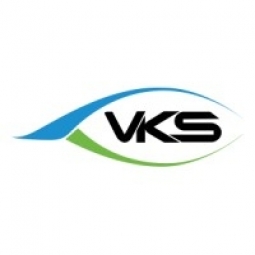Technology Category
- Functional Applications - Manufacturing Execution Systems (MES)
- Sensors - Temperature Sensors
Applicable Industries
- Education
- Equipment & Machinery
Applicable Functions
- Product Research & Development
Use Cases
- Additive Manufacturing
- Manufacturing System Automation
Services
- Hardware Design & Engineering Services
- Training
About The Customer
Cleveland State University (CSU) is a public research institution located in Cleveland, Ohio. It offers a wide range of academic programs and degrees, including engineering. CSU is committed to providing a high-quality education that prepares students for the demands of the modern workforce. In the context of this case study, CSU is particularly focused on training its mechanical engineering students in the use of smart manufacturing tools and their applications. The university is using VKS digital work instructions to expose students to the realities of the current manufacturing and engineering environment, and to prepare them to close the skills gap in their future companies.
The Challenge
The manufacturing sector is facing a significant skills gap, with an expected 2.1 million unfilled jobs by 2030, costing trillions for the US alone. To address this, manufacturing companies are adopting smart manufacturing tools and work instruction software. However, the challenge extends beyond the industry to educational institutions, which need to prepare the next generation of workers for the modern manufacturing environment. Cleveland State University (CSU) is one such institution, aiming to train its engineering students on smart manufacturing tools and their applications. The challenge is to provide students with a comprehensive understanding of product design and manufacturing system design, and to prepare them to close the skills gap in their future companies.
The Solution
CSU, under the guidance of Dr. Saeed Farahani, Assistant Professor of Engineering, is using VKS digital work instructions to expose students to the realities of the current manufacturing and engineering environment. Students are given projects where they have to prepare a VKS Guidebook for a product of their choosing, helping them understand product design and assembly. They are also taught to consider how VKS work instruction software can be used to enhance manufacturing operations. The software helps companies quickly train inexperienced employees, enabling every worker to perform multiple tasks and responsibilities. Beyond the classroom, CSU plans to use VKS in its research facility to improve how experiments and tests are performed, and to maintain standardized operating procedures despite the high turnover of students.
Operational Impact

Case Study missing?
Start adding your own!
Register with your work email and create a new case study profile for your business.
Related Case Studies.

Case Study
Smart Water Filtration Systems
Before working with Ayla Networks, Ozner was already using cloud connectivity to identify and solve water-filtration system malfunctions as well as to monitor filter cartridges for replacements.But, in June 2015, Ozner executives talked with Ayla about how the company might further improve its water systems with IoT technology. They liked what they heard from Ayla, but the executives needed to be sure that Ayla’s Agile IoT Platform provided the security and reliability Ozner required.

Case Study
IoT enabled Fleet Management with MindSphere
In view of growing competition, Gämmerler had a strong need to remain competitive via process optimization, reliability and gentle handling of printed products, even at highest press speeds. In addition, a digitalization initiative also included developing a key differentiation via data-driven services offers.

Case Study
Predictive Maintenance for Industrial Chillers
For global leaders in the industrial chiller manufacturing, reliability of the entire production process is of the utmost importance. Chillers are refrigeration systems that produce ice water to provide cooling for a process or industrial application. One of those leaders sought a way to respond to asset performance issues, even before they occur. The intelligence to guarantee maximum reliability of cooling devices is embedded (pre-alarming). A pre-alarming phase means that the cooling device still works, but symptoms may appear, telling manufacturers that a failure is likely to occur in the near future. Chillers who are not internet connected at that moment, provide little insight in this pre-alarming phase.

Case Study
Premium Appliance Producer Innovates with Internet of Everything
Sub-Zero faced the largest product launch in the company’s history:It wanted to launch 60 new products as scheduled while simultaneously opening a new “greenfield” production facility, yet still adhering to stringent quality requirements and manage issues from new supply-chain partners. A the same time, it wanted to increase staff productivity time and collaboration while reducing travel and costs.

Case Study
Integration of PLC with IoT for Bosch Rexroth
The application arises from the need to monitor and anticipate the problems of one or more machines managed by a PLC. These problems, often resulting from the accumulation over time of small discrepancies, require, when they occur, ex post technical operations maintenance.

Case Study
Robot Saves Money and Time for US Custom Molding Company
Injection Technology (Itech) is a custom molder for a variety of clients that require precision plastic parts for such products as electric meter covers, dental appliance cases and spools. With 95 employees operating 23 molding machines in a 30,000 square foot plant, Itech wanted to reduce man hours and increase efficiency.



